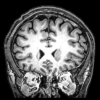Hi all.
I've been lurking on the forums for a few years and have found it massively helpful. I haven't posted much but that's because I don't really have enough knowledge to make meaningful contributions.
That said I've got a specific and unique issue that's affected my life for years now, and I really need some help.
It concerns alcohol. Whenever I drink, no matter how small the quantity, it's almost as if some switches in my brain are turned off permanently. I'm a worse version of myself-more nervous, not as insightful, lazier, just flat out dumber. These of course are the short-term effects of alcohol use but for everyone else they disappear within a few days and they are back to normal.
Not me-the symptoms persist (in a small way, of course-I'm not permanently hungover) but I'm noticeably off my peak and can't seem to return to it naturally.
Enter piracetam-I discovered this in college and it was nearly life-changing. The semester in which I used it, my GPA jumped by .25 as it turned my mind back on. Nowadays, the only daily supplement I use is ALCAR which I like for the metabolic benefits and overall wakefulness/energy. That said, whenever I drink I have to follow this with a few day "course" of piracetam after which the switches are back on and I'm fine again. That said I have a lot of negative side effects with piracetam, I find it causes me tremendous fatigue and weight gain. Also piracetam doesn't always work so sometimes I find myself in a fog for a few days.
As you can imagine this has wreaked havoc on my social life, I can't go out without "drink-dodging" and god forbid I go to a club, bar etc. I have never drunk to excess but it would be nice of course to enjoy a night out without suffering as I do.
My health is unremarkable apart from one thing-I have horrible cardio fitness, I can barely run 1 mile without feeling like I'm going to die. I wonder if this is the source of my issue, when I was younger I was in better shape and I remember after a few hours of tennis I'd feel very calm/relaxed/focused.
Has anyone else experienced this issue? What could be my problem and what is a possible solution?
Thanks and regards






















































